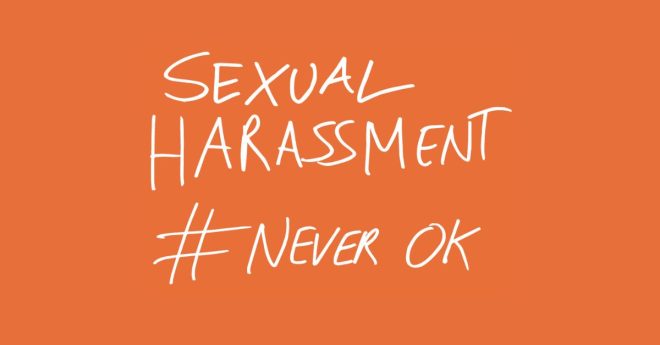Written by student Talor Boyd.
Would you be able to recognise sexual harassment, and would you know how to do something about it?
Learning about behaviours associated with sexual harassment is the first step in being able to call it out and make a positive change to the culture at the University of Reading.
Spotting the Signs of sexual harassment:
The Equality Act 2010 says someone sexually harasses another person if they:
- Engage in unwanted conduct of a sexual nature and
- The conduct has the purpose or effect of either violating the other person’s dignity or creating an intimidating, hostile, degrading, humiliating or offensive environment for them.
This can happen online, in person and to anyone regardless of gender.
Spotting the signs may not always be easy, as many behaviours associated with sexual harassment are often normalised, so it is important to stay educated on what sexual harassment may look like.
“Sexual harassment can include unwanted and unwelcome words, conduct, or behaviour of a sexual nature that has the purpose or effect of creating an intimidating, embarrassing, hostile, degrading, humiliating or offensive environment for the recipient. It can be written, verbal or physical, and can happen in person, online or via social media. “
It is the person affected by the sexual behaviour who decides if it’s unwanted – NOT the person doing the behaviour. It also doesn’t matter if other people you know think, or tell you, the unwanted sexual behaviour is okay. The limit of what and how much behaviour is acceptable to you is up to the person receiving it to decide. A single incident and/or persistent behaviour can amount to harassment. “Just because certain sexual behaviour was welcomed or not objected to in the past doesn’t mean that it can’t become unwanted. Or that other sexual behaviour is wanted.”– University of Reading Never OK
Sexual harassment can cover a wider variety of behaviours. The University campaign ‘See it, Say it, Stop it’ highlights:
Staring – Intrusive staring with sexual intent making someone feel uncomfortable is sexual harassment.
Sexual jokes – Unwanted jokes of a sexual nature that can make people feel uncomfortable or threatened.
Locker room talk – Crude or vulgar talk, often involving boasts about sexual experiences.
Unwanted touching –When a person touches you without your consent.
Catcalling – Publicly shouting harassment, and using sexually suggestive, threatening, or derisive comments
Unsolicited nudes – Sending unwanted nude or sexual photographs of themselves, or others, without consent.
Revenge porn – Sending sexual images or videos of someone without their consent.
Unwanted sexual messages – Receiving unwanted sexual messages without giving your consent.
Educating yourself on these and other behaviours associated with sexual harassment will help you identify whether you or someone else is being harassed.
Doing something about it:
If you see any of these behaviours happening it is essential to know how to deal with it. Nothing is too small to report and learning how to do something about it will empower you to call it out when you see sexual harassment happening.
It is important to note that you shouldn’t approach a situation or say anything directly if you feel it could put you in danger. Remember to always contact the correct authorities if you need to.
By signing the University’s sexual harassment pledge, you will agree to complete the consent and active bystander training, which will teach you how to tackle negative behaviours. Research shows that bystander intervention can be an effective way of stopping situations before they happen, as bystanders play a key role in preventing, discouraging, and/or intervening when an act of violence has the potential to occur.
Anyone affected by sexual harassment, even if just witnessing these behaviours is encouraged to seek support as soon as possible either from the University or from external agencies. The University will never make assumptions about what you want to do and will respect any decision that you make.
If you would like to formally report the incident to the University – you can do this by emailing neverok@reading.ac.uk. Once you have reported an incident our Student Welfare team will contact you to offer you support, talk through your options and explain what can happen next to help you decide what you want to do.
We all have a part to play in ending the culture of sexual harassment. For more information on the campaign, sexual harassment and Never OK, visit the Never OK Sexual Harassment webpages on Essentials.
Sign the pledge to support our community to stand against sexual harassment. So far 311 students have signed and agreed to play their part!
Resources
